Episodes
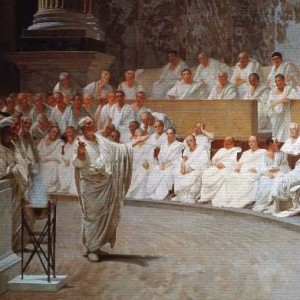
Tuesday Feb 25, 2020
Senior Orations, Rhetoric, and the Pursuit of Truth with Dr. Virginia Arbery
Tuesday Feb 25, 2020
Tuesday Feb 25, 2020
“Wisdom without eloquence is of little advantage,” said the great Roman orator Marcus Tullius Cicero, “but eloquence without wisdom is most mischievous.”
Last week was a big week here at Wyoming Catholic College. Classes were canceled on Tuesday, Wednesday, and Thursday to make room for three days of senior orations.
Each of our seniors writes a thesis during the fall semester and then in late February delivers a half-hour lecture on their thesis topic followed by a half-hour of questions—first from the faculty panel that will be grading the oration and then from the audience.
The school community—students, faculty, and staff—make up the audience that also includes family and alumni who make the trip back to Lander to hear our seniors present their ideas with wonderful rhetorical skill.
“How do they come by that skill?” you ask. Part of our integrated curriculum is the sequence of courses called the Trivium: grammar, logic, and rhetoric. Dr. Virginia Arbery teaches Trivium 202: Political Rhetoric and the Common Good. Dr. Arbery is our guest on this edition of The After Dinner Scholar.
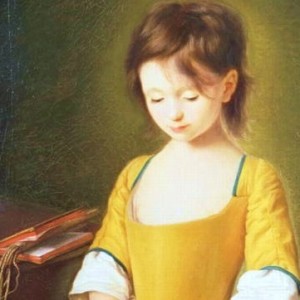
Tuesday Feb 18, 2020
The Season of Lent in East and West with Fr. David Anderson
Tuesday Feb 18, 2020
Tuesday Feb 18, 2020
These days before Lent are typically known as Carnival, that season of masquerade, music, dancing, and reveling as people (presumably) bid Vale carne, "Goodbye, meat."
The Lenten fast has a long history in the Christian Church—not as long as the celebration of Pascha, that is, Easter—but long nonetheless.
Our word “lent” is derived from the Old English word lencten meaning springtime. Nonetheless it has become synonymous with what is still called in many places “The Great Fast.” The goal is to spend forty days preparing to celebrate Easter through prayer, penance, and fasting.
But how do you count those forty days especially when from Ash Wednesday to Holy Saturday is actually 46 days? And what is an appropriate Lenten fast? Vale Carne or "Vale wine and chocolate" or "Vale corn chips"?
Wyoming Catholic College’s Byzantine Catholic chaplain Fr. David Anderson spoke to interested students last week about Lent and is our guest on this episode of The After Dinner Scholar.
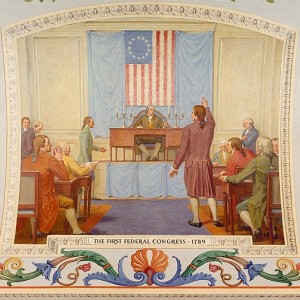
Tuesday Feb 11, 2020
Religious Freedom Today by Dr. Jim Tonkowich
Tuesday Feb 11, 2020
Tuesday Feb 11, 2020
There’s been a great deal of concern about religious freedom over the past ten or so years and for good reason. Religious freedom is central to all human freedom. But the conversation about religious freedom involves two highly controversial words. Those words are “religious” and “freedom.”
In January Dr. Jim Tonkowich had the privilege of speaking about religious freedom to the Wyoming Pastors’ Network as they met on the day before the March for Life in Cheyenne. They are concerned about the future of religious freedom in our country particularly as the culture’s understanding and our laws concerning human sexuality, marriage, and morality continue to veer away from and even be at odds with biblical and Church teachings.
After covering the history of religious freedom, Dr. Tonkowich moved on to those two controversial words: Religion and Freedom.
Recordings of Dr. Tonkowich's three lectures can be found at The Wyoming Pastors' Network website.
"Religious Freedom in America," Wyoming Catholic College's 12-part distance learning course can be found at the college website.

Tuesday Feb 04, 2020
Much Ado About "Much Ado About Nothing" with Dr. Tiffany Schubert
Tuesday Feb 04, 2020
Tuesday Feb 04, 2020
William Shakespeare’s “Much Ado About Nothing” has it all: heroes and villains, loyalty and betrayal, hatred and love, vengence and silliness, a devilish plot and a happy ending. At one point it veers dangerously close to utter tragedy only to come right again with true love conquering even the coldest hearts.
After trading Beatrice's and Benedick's insults, guest Dr. Tiffany Schubert shares insights into this delightful comedy.
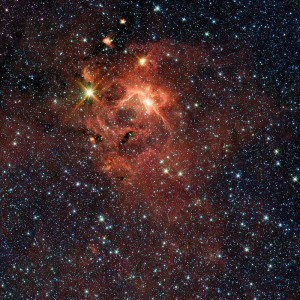
Tuesday Jan 28, 2020
The Simplicity of the Universe with Dr. Scott Olsson
Tuesday Jan 28, 2020
Tuesday Jan 28, 2020
TV producer Stephen Moffatt who among other things produced the sci-fi hit “Dr. Who” commented, “The universe is big, it’s vast and complicated, and ridiculous.” Well, the universe certainly is big and vast, but it is most certainly not ridiculous. As to complicated? It turns out that in a certain sense, the universe is not complicated. It is simple.
Scientists have put forth all kinds of complex ideas about the universe. Chaos theory, string theory are two examples. They are very complicated and, in the end, not terribly helpful. Instead scientists are looking the other direction: away from complexity to simplicity.
Dr. Scott Olsson is this weeks guest telling us what scientists mean by simplicity.
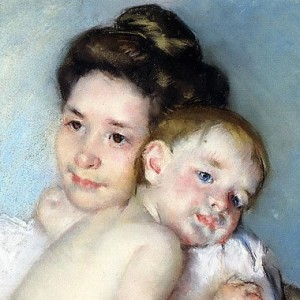
Tuesday Jan 21, 2020
"The Man Who Wrote Roe v. Wade" with Sue Ellen Browder
Tuesday Jan 21, 2020
Tuesday Jan 21, 2020
Soon after joining the U.S. Supreme Court in 1970, Associate Justice Harry Blackmun received an unwelcome surprise. Chief Justice Warren Burger put him in charge of writing the majority opinion in Roe v. Wade the ruling legalizing abortion across the United States.
Prior to writing that opinion, Blackmun thought little about abortion. But the opinion he wrote plus the enormous criticism the opinion and he personally received turned Blackmun into a strident exponent of abortion insisting that a woman’s right to choose to abort her child is a fundamental right.
Sue Ellen Browder majored in journalism and ended up working for Cosmopolitan magazine. She tells her story in her most recent book from Ignatius Press, Subverted: How I Helped the Sexual Revolution Hijack the Women’s Movement. The research she did for that book also yielded the story of Harry Blackmun and Roe.
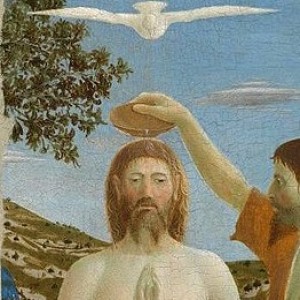
Tuesday Jan 14, 2020
Blessings the Waters, Living with Christ with Prof. Kyle Washut
Tuesday Jan 14, 2020
Tuesday Jan 14, 2020
All of Lander including our Wyoming Catholic College Students love Sinks Canyon. The natural beauty is breathtaking and on any given day regardless of the season, you can meet people hiking, rock climbing, fishing, camping, birding, and mountain biking. Next week, however, you’ll be able to see another unexpected activity: processing, worshipping, and the blessing of the waters.
The Blessing of the Water is a part of the Eastern Christian celebration of Theophany, the Feast of Christ’s baptism. In addition, this feast opens for us a new and larger understanding of time—specifically liturgical time and the liturgical calendar.
Wyoming Catholic College Professor Kyle Washut and reflected on these things for some time and is our guest on this edition of The After Dinner Scholar.
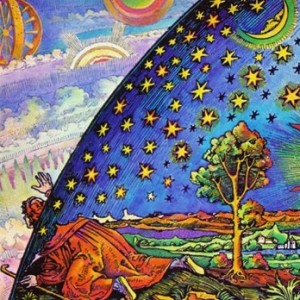
Tuesday Jan 07, 2020
Time: Thick, Deep, High with Dr. Jeremy Holmes
Tuesday Jan 07, 2020
Tuesday Jan 07, 2020
We celebrated Epiphany last Sunday. We will celebrate the Baptism of Jesus next Sunday then the following Monday we begin “Ordinary Time.” There’s something going on here—actually many things going on here—that cannot be summed up with Google Calendar and a wristwatch.
Google Calendar and wristwatch time is what philosopher Charles Taylor calls “secular time”: It’s 10 AM. I have a meeting at two this afternoon. The corporate quarter ends on January 30. The year is 2020.
But is that all there is to time? Is it merely an empty expanse of moments that we fill or is there—as Taylor suggests—something more to time, something that, as he puts it, gathers and reorders secular time?
Dr. Jeremy Holmes has thought a great deal about the nature of time and is our guest this week on The After Dinner Scholar.
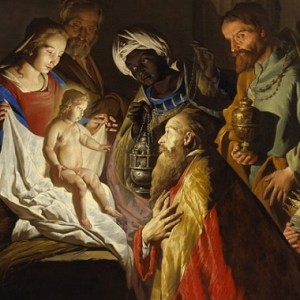
Tuesday Dec 31, 2019
The Magi in the Poetry of Yeats and Eliot with Dr. Glenn Arbery
Tuesday Dec 31, 2019
Tuesday Dec 31, 2019
‘A cold coming we had of it,
Just the worst time of the year
For a journey, and such a long journey:
The ways deep and the weather sharp,
The very dead of winter.’
Those lines are the beginning of T. S. Eliot’s poem “Journey of the Magi,” an imagined first-person reflection by one of the Magi on the long trip to Bethlehem.
St. Matthew’s Gospel makes it clear that these were the first Gentiles, the first non-Jews to worship Christ. And they, their journey, and their gifts—gold for a king, frankincense for a God, and myrrh with its aroma of death—have attracted a good deal of interest and imagination over the centuries.
As we prepare for the Feast of Epiphany, Wyoming Catholic College president Dr. Glenn Arbery discusses Eliot’s poem (written in 1927) as well as one written by William Butler Yeats some years earlier (in 1916).
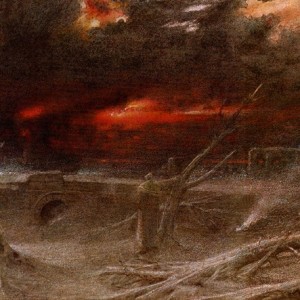
Tuesday Dec 24, 2019
The Abolition of Man, Part Three: "The Abolition of Man" with Dr. Jason Baxter
Tuesday Dec 24, 2019
Tuesday Dec 24, 2019
In his book, The Abolition of Man, C. S. Lewis imagined a reader saying, “You say we shall have no values at all if we step outside the Tao. Very well: we shall probably find that we can get on quite comfortably without them. Let us regard all ideas of what we ought to do simply as an interesting psychological survival: let us step right out of all that and start doing what we like. Let us decide for ourselves what man is to be and make him into that: not on any ground of imagined value, but because we want him to be such. Having mastered our environment, let us now master ourselves and choose our own destiny.”
That quote is at the end of the second chapter of The Abolition of Man our Wyoming Catholic College book of the year. In that chapter Lewis argued that the Tao or Natural Law is essential for any morality, any sense of “ought to.” But what if we throw away morality? What if we allow no ought, no permanent values, nothing but what we as humans choose for ourselves in any given age?
That question leads to the third and final part of the book and the final abolition of man. In this, our third podcast about The Abolition of Man, our guest is Wyoming Catholic College’s Academic Dean, Dr. Jason Baxter.

